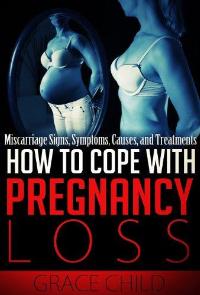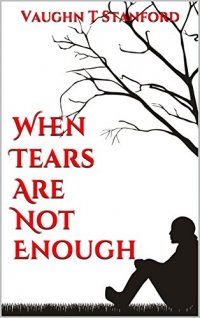How to Cope After a Miscarriage-Signs, Symptoms, Causes, and Treatments
This book was written to help women who have suffered from having a miscarriage. You will get concret insight into why miscarriages happen and who is at risk. As well as tips of how to heal emotionally after losing a pregnancy.
Grace Child writes in such a way that will help you better understand the physical and emotional pain you are going through. She explains in detail the signs, symptoms, and treatments of a miscarriage, and how to seek emotional support.
Here are some things from the book
Types of Miscarriages
1. Complete Miscarriage: This is the type of miscarriage when all of the pregnancy tissue has been expelled and all signs of pregnancy are lost.
2. Incomplete Miscarriage: This is the type of miscarriage when not all of the pregnancy tissue has been expelled. Perhaps some were taken out but some were left in the womb, so further methods need to be explored.
Signs and Symptoms of a Miscarriage
1. Vaginal bleeding. This is the most common symptom of a miscarriage. As a matter of fact, half of the women who report bleeding during pregnancy had a miscarriage. Vaginal bleeding related to miscarriage can vary from very light spotting or discharge to profuse bleeding. While it is quite normal for some bleeding to be experienced during the early stages of pregnancy, it is important that the occurrence of blood is never ignored because it may signify something serious. In fact, sometimes vaginal bleeding signifies a “threatened miscarriage”.
What Causes Miscarriages
The likelihood of miscarriages in pregnancies is quite high and they could be caused by a few things. About 15-20% of pregnant women can face a miscarriage and the following causes are pointed as culprits:
1. Age of the Mother. The age of the mother can affect the quality of the pregnancy. There is a highlighted child-bearing age when a woman is at her health peak for carrying a child. Miscarriages are quite rare in these ages (usually below 30 years old) but as the woman gets older, the risk of miscarriage gets higher, simply because of her age.
Prevention
While there is no definite way to actually prevent it from happening, the following information should be of value:
– Greater caution should be provided to women with a previous history of abortion or those women who got pregnant through assisted reproductive technology methods. These women are more prone to miscarriages so their pregnancies should be monitored closely.
Dealing with the Emotions
The miscarriage will come with a great deal of sadness and you have to deal with the pain that is often damaging if not handled well. The following things should help you deal with the emotions:
1. Grieve your loss. Some people think that dwelling on what has happened is unhealthy, but putting it at the back your mind and forgetting to acknowledge it as an occurrence will be most damaging. Do not hide from the problem. Do not try to escape what has happened because there is no way for you to evade reality. If you need to wail, do so. If you need to scream to the skies and break a few plates, do it. Let yourself go through the grieving process. You have lost a child—it is not right to belittle what you went through, so go ahead and grieve.
After a loss of this magnitude, you will go through a grieving process. Just let yourself go through it all and let the wounds heal—they will. It may seem impossible at first, but you will get there, one step at a time.
As you can see this book can help you overcome this hard time in your life and help you understand what you are going through.
Get the book now while it is being offered at a special introductory price. You’ll be glad you did.













